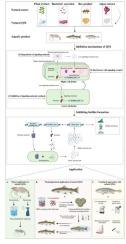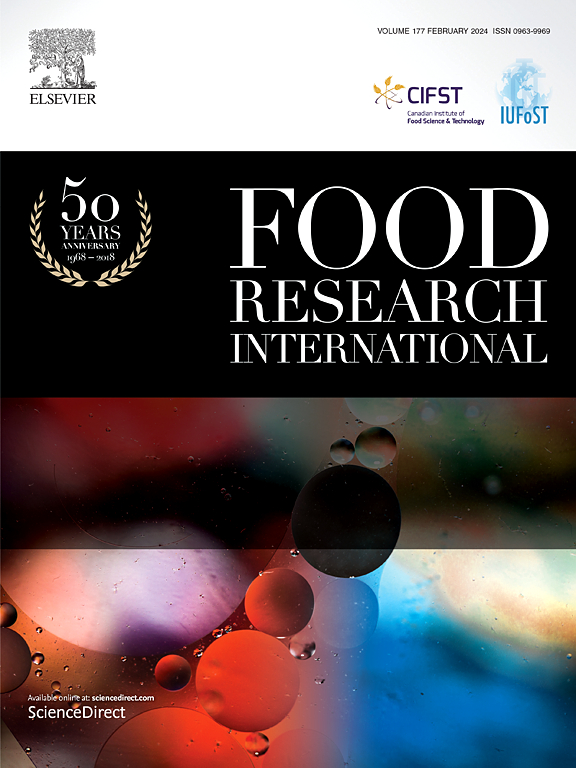生物膜形成中的群体感应系统和天然群体感应抑制剂在水产品保存中的潜在应用
IF 8
1区 农林科学
Q1 FOOD SCIENCE & TECHNOLOGY
引用次数: 0
摘要
水产品中含有多种微生物,包括腐败菌和致病菌。由细菌引起的水产品腐败与生物膜的形成有关,依赖于细胞密度,通过一个被称为群体感应(QS)的过程。这一过程通过合成、检测和响应自诱导剂(AIs)来进行细胞通讯,主要包括酰基化同丝氨酸内酯(AHL)、自诱导剂-2 (AI-2)和自诱导剂肽(AIP)。破坏QS系统会干扰水产品中细菌形成的生物膜。天然群体感应抑制剂(qsi)因其安全、环保和广谱抗菌特性而受到广泛的研究。在这篇综述中,我们研究了QS系统在水产品中与食物有关的细菌形成生物膜中的作用,并总结了天然qsi的类型及其抑制生物膜形成的机制。此外,我们还讨论了天然qsi在水产品保鲜中的潜在应用,并对未来的研究进行了展望。本文章由计算机程序翻译,如有差异,请以英文原文为准。

Quorum sensing systems in biofilm formation and the potential application of natural quorum sensing inhibitors in aquatic product preservation
Aquatic products contain a variety of microorganisms, including spoilage and pathogenic bacteria. The spoilage of aquatic products induced by bacteria is related to biofilm formation, relying on cell density, through a process known as quorum sensing (QS). This process involves cell communication by synthesizing, detecting, and responding to autoinducers (AIs), mainly including acylated homoserine lactone (AHL), autoinducer-2 (AI-2) and autoinducer peptide (AIP). Disrupting QS systems can interfere with biofilm formation by bacteria in aquatic products. Natural quorum sensing inhibitors (QSIs) have been widely studied for their safety, environmental friendliness and broad-spectrum antimicrobial properties. In this comprehensive review, we examine the role of QS systems in biofilm formation by food-related bacteria in aquatic products and summarize the types of natural QSIs along with their mechanisms of action in inhibiting biofilm formation. Furthermore, we discuss potential applications of natural QSIs in aquatic product preservation and provide perspectives for future research.
求助全文
通过发布文献求助,成功后即可免费获取论文全文。
去求助
来源期刊

Food Research International
工程技术-食品科技
CiteScore
12.50
自引率
7.40%
发文量
1183
审稿时长
79 days
期刊介绍:
Food Research International serves as a rapid dissemination platform for significant and impactful research in food science, technology, engineering, and nutrition. The journal focuses on publishing novel, high-quality, and high-impact review papers, original research papers, and letters to the editors across various disciplines in the science and technology of food. Additionally, it follows a policy of publishing special issues on topical and emergent subjects in food research or related areas. Selected, peer-reviewed papers from scientific meetings, workshops, and conferences on the science, technology, and engineering of foods are also featured in special issues.
 求助内容:
求助内容: 应助结果提醒方式:
应助结果提醒方式:


